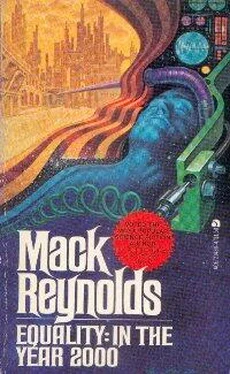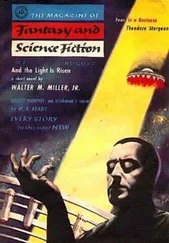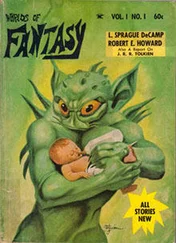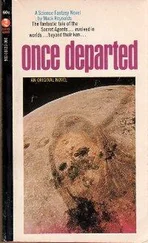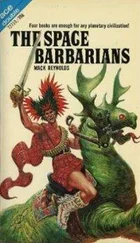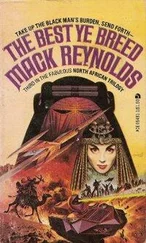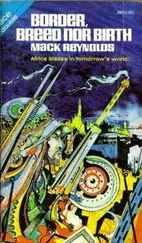Mack Reynolds - Equality - In the Year 2000
Здесь есть возможность читать онлайн «Mack Reynolds - Equality - In the Year 2000» весь текст электронной книги совершенно бесплатно (целиком полную версию без сокращений). В некоторых случаях можно слушать аудио, скачать через торрент в формате fb2 и присутствует краткое содержание. Год выпуска: 1977, ISBN: 1977, Издательство: Ace Books, Жанр: Фантастика и фэнтези, на английском языке. Описание произведения, (предисловие) а так же отзывы посетителей доступны на портале библиотеки ЛибКат.
- Название:Equality: In the Year 2000
- Автор:
- Издательство:Ace Books
- Жанр:
- Год:1977
- ISBN:0-441-21430-4
- Рейтинг книги:3 / 5. Голосов: 1
-
Избранное:Добавить в избранное
- Отзывы:
-
Ваша оценка:
- 60
- 1
- 2
- 3
- 4
- 5
Equality: In the Year 2000: краткое содержание, описание и аннотация
Предлагаем к чтению аннотацию, описание, краткое содержание или предисловие (зависит от того, что написал сам автор книги «Equality: In the Year 2000»). Если вы не нашли необходимую информацию о книге — напишите в комментариях, мы постараемся отыскать её.
Equality: In the Year 2000 — читать онлайн бесплатно полную книгу (весь текст) целиком
Ниже представлен текст книги, разбитый по страницам. Система сохранения места последней прочитанной страницы, позволяет с удобством читать онлайн бесплатно книгу «Equality: In the Year 2000», без необходимости каждый раз заново искать на чём Вы остановились. Поставьте закладку, и сможете в любой момент перейти на страницу, на которой закончили чтение.
Интервал:
Закладка:
It is manifest that a doubling of the world’s population in a generation has monstrously distorted traditional patterns. It is manifest that technology is at the bottom of it, specifically modern medicine. All Humanity is affected… The goal of the birth control movement is a balanced society where man and his environment are in reasonable equilibrium, where children are wanted and cared for… if a given society desires… modern medicine and a low death rate, it must limit its birth rate.
—Stuart Chase, The Most Probable WorldEdith showed him the house in detail and Julian was properly impressed.
He asked, “Down here, away from the elements, how long would you expect a house like this to last?”
The question had evidently never occurred to her. “Why, I would think forever, given no serious earthquakes—or something unlikely such as being hit by a good-sized meteor. And always assuming, of course, that social change doesn’t bring us to a new politico-economic system that involves the stupidity of wars.”
“Knock on wood,” her guest muttered.
She said, “You know, in my archaeological studies the other day I was reading about some excavations in Mesopotamia, near Ur. They found a tomb constructed and furnished like a house. Everything was still perfect; in that dry climate not a thing had deteriorated. The walls were made of adobe brick, and so were the floors. The floors had been treated with ox blood and milk, evidently over and over again, so that they were as hard as linoleum, and they had retained their beautiful deep red sheen down through the thousands of years. It seems that underground houses, made with natural materials, can last forever.”
“Natural materials?”
“Actually, building materials have come a long way in the past third of a century. Beginning with spin-offs from the space program experiments, our scientists and technicians took off in all directions. For instance, the glass in this house is shatterproof, bullet-proof, and all but indestructible. I’m not up on the subject, but you can investigate it when we get back to the university, if you wish. Let’s eat, Jule. I’m starved.”
They went into the dining room. Julian said, “You name it. I have yet to have a dish in this era that wasn’t delicious.”
“How about a mixed grill of liver, kidney, and heart?”
“Sounds good.”
Edith dialed and while they waited she said, “Now, cooking is something I know a little about, since mother is such a buff. It’s become a fine art. In the past, almost everyone had food prejudices, often inherited from their parents since most cooking was done in the home. ‘I’m a meat and potatoes man,’ was a proud boast, when it should have been something to be ashamed of. There was precious little variety in most restaurant menus. From coast to coast you would find practically identical fare, and there was a sandwich stand on just about every corner. Now we teach the young people to be gourmets from earliest childhood.”
Julian laughed ruefully. “I too have my food prejudices. I could never stand either spinach or squash!”
The center of the table dropped, to return with their meal. Edith had ordered salad, vegetables, and a bottle of claret to go with the grill.
He shook his head. “I can’t get used to the idea of this meat being factory raised.”
“It makes sense,” she said. “Raising beef, pork, even chickens in the old manner was terribly inefficient, and practically impossible to automate very much. Take a country like India. In your day, they had hundreds of millions of cows. Can you imagine how much food had to go into each of them each year? And most of the Indians wouldn’t even eat beef for religious reasons. Humans starved, while cattle ate half the agricultural products of the country.”
Julian said, “And now it’s all raised in what amounts to oversized test tubes, in which the necessary nutrients are piped in to continue the life and growth of the various meats. But you still have to have agricultural products to nourish this living—but not really living—flesh.”
“Yes, but much less than when we raised the whole animal. In the factory vats, where the meat grows, there are no bones, no skin, no waste at all. We grow only the parts of the animal we wish to use. Sir, this is a grim subject to discuss while eating.”
Julian agreed. “All right. Here’s something else I wanted to ask you about. When you were kidding me about renting houses rather than owning them, you mentioned the fact that first we had a baby, and then since my—my girl and I were genetically ideal we were given permission to have a second child. That floors me. You mean you have to be genetically checked out before you can have children these days? We wouldn’t have stood for that in my time.”
“I worded that poorly,” she admitted. “There is no law involving such things, but there have been considerable advances in genetics in the past quarter of a century. As a consequence, from earliest youth we are taught how important it is not to have children by someone whose genes are such that the child might be affected adversely. So it is that practically any couple considering children will have themselves throughly checked out.”
“Even if a couple were told that a child of theirs would be a Mongolian idiot, they could go ahead if they wished?”
“Yes. You can see how extremely unlikely that would be, but there is no law against it. We’ve eliminated laws having to do with individual actions that don’t harm anyone else. If you want to read pornography you can do so until your eyes drop out. If you want to take dope until you’re so far around the bend that you have to be hospitalized, go ahead—just so long as you don’t harm someone else. If you’re a homosexual, have the time of your life—but make sure your partner is a consenting adult.”
“So that genetic thing is voluntary.”
“That’s right.”
Julian took another sip of his wine. “What’s happened to the population explosion? What’s the population now? What is it in India, for heaven’s sake?”
She looked at him in surprise. “You continually set me back with your lack of knowledge of your own period. Surely the population problem was already phasing itself out at the time you went into hibernation.”
“We considered it one of the most dangerous trends of our time.”
“The existence of a trend doesn’t mean it will continue, Jule. For instance, in the nineteenth century the horse population in the United States doubled, tripled, quadrupled at least every decade. But it slid to a halt shortly after the turn of the century, with the advent of the internal combustion engine. By the middle of the twentieth century, the horse was largely a rich man’s hobby.”
“That was horses. But in my day, human population was booming.”
She shook her head. “It was already falling off in the most advanced countries. Japan and Holland were two of the first to achieve zero population growth, and West Germany, in 1972, was the first modern country to lose population: thirty-thousand to be exact. Even then the United States was pushing the zero population growth point. I’m no Marxist, but I go along with his materialist conception of history. Most of our institutions have economic backgrounds.”
“What in the devil has that got to do with the amount of population? By the way, how much larger is it now than it was in 1970?”
“I haven’t seen recent statistics, but I assume it’s smaller. There were too many people in the world for its resources.”
He just stared at her.
She explained impatiently, “People of the past wanted large families to work on the farm, for child labor in factories, to help support the family. Especially in countries such as England; Marx’s chapters on child labor in nineteenth century England are absolutely chilling. But by the twentieth century, what with developments in both industry and agriculture so that it was no longer practical to employ children—a child can’t run a tractor, nor program a computer—families grew smaller. Particularly after women began to join the labor force. Women who worked were no longer in a position to raise children; well, not a whole brood of them, certainly. Houses and apartments were now rarely built with four or five bedrooms. And some landlords refused to take families with any children at all.
Читать дальшеИнтервал:
Закладка:
Похожие книги на «Equality: In the Year 2000»
Представляем Вашему вниманию похожие книги на «Equality: In the Year 2000» списком для выбора. Мы отобрали схожую по названию и смыслу литературу в надежде предоставить читателям больше вариантов отыскать новые, интересные, ещё непрочитанные произведения.
Обсуждение, отзывы о книге «Equality: In the Year 2000» и просто собственные мнения читателей. Оставьте ваши комментарии, напишите, что Вы думаете о произведении, его смысле или главных героях. Укажите что конкретно понравилось, а что нет, и почему Вы так считаете.
